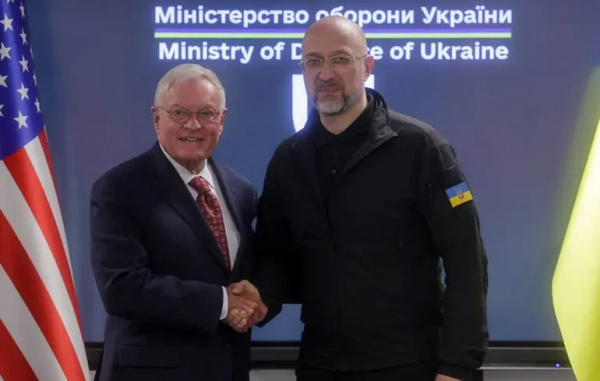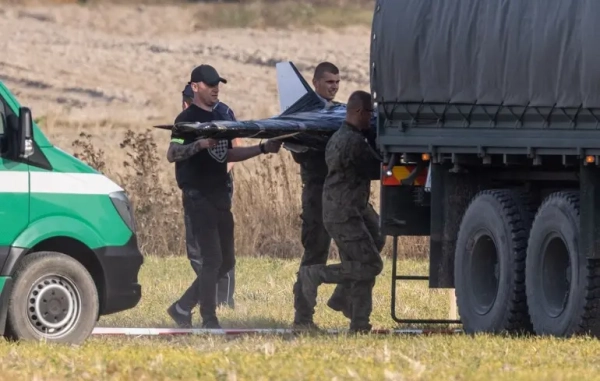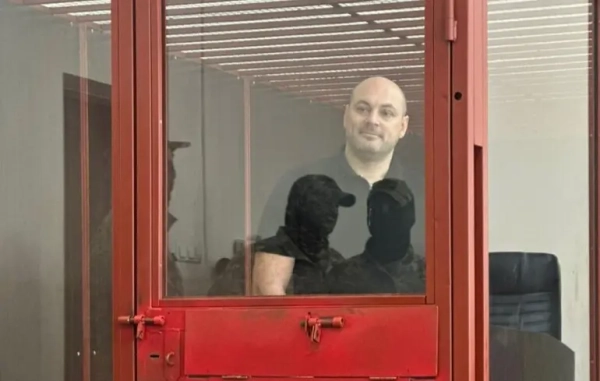
France's highest court on Friday upheld some of former Syrian President Bashar al-Assad's immunity as a foreign head of state while also legalizing the ability to issue arrest warrants for war crimes suspects, sparking outrage among human rights groups and Syrian activists.
The Cassation Tribunal upheld Assad's immunity as head of state, but said that since he had now lost power, “new arrest warrants may have already been issued or may be issued against him for acts falling within the category of war crimes or crimes against humanity.”
The verdict came as a disappointment to activists who had hoped the immunity would be lifted, and could impact future cases against other leaders accused of crimes.
“From the point of view of the victims, this is a colossal mistake. It will give space to another dictatorship to continue such crimes, knowing that it will be protected by immunity,” said Mazen Darwish, head of the Syrian Media Center, which has been collecting evidence of war crimes.
“This is a tragic day for us,” Mr Darwish added.
Cassation Court President Christophe Soulard said in a ruling that 19 judges had not lifted Assad's immunity, which could pave the way for a trial in absentia in France over the 2013 Ghouta chemical weapons attack.
Human rights activists stressed the need to ensure that leaders who committed atrocities while they were in power, not just after they left office, were held accountable.
However, international law does not allow this.
“Under current international law, war crimes and crimes against humanity are not outside the jurisdictional immunity of sitting heads of foreign states,” Mr Soulard said.
Assad, Syria's ousted leader, now in exile in Russia, has not hired lawyers to defend him and denies any involvement in the chemical attacks.
“The ruling is a missed opportunity to do justice,” said Mariana Peña, a lawyer with the Open Society Justice Initiative who helped lead the case.
She added, however, that the decision “leaves the chance to prosecute Assad.”
In addition, the court simultaneously considered the case against the former finance minister of Syria under the Assad regime, allowing for his possible criminal prosecution.
Adib Mayaleh's defence insists he is protected by the international principle of immunity.
For more than half a century, Syria was controlled by Hafez al-Assad and then his son Bashar.
During the Arab Spring offensives in 2011, the country of 23 million people began to revolt against a tyrannical regime, leading to a brutal 13-year civil war that has claimed more than 500,000 lives, according to estimates by the Syrian Observatory for Human Rights.
Millions of others were forced to flee to Lebanon, Jordan, Turkey and European countries.
The Assad dynasty has manipulated sectarian tensions to maintain control of power, which has once again fueled violence against minorities in Syria, despite promises that future political structures would be more inclusive of all of the country's communities.
The International Criminal Court is not bound by the principle of immunity for heads of state and has issued arrest warrants for leaders accused of atrocities, including Russian President Vladimir Putin for his actions in Ukraine, Israeli Prime Minister Benjamin Netanyahu in Gaza and Rodrigo Duterte in the Philippines.
In 2013, the Syrian government denied responsibility for the Ghouta attack, but the opposition pointed out that the only side in possession of sarin in the brutal civil war was Assad's forces.
After this, the US threatened a military strike, but Washington concluded an agreement with Moscow, according to which Assad, far from completely, but nevertheless, got rid of his stockpiles of chemical weapons.
Assad has maintained power for more than a decade thanks to Russian military support and Iranian-controlled proxy forces.
Activists and human rights groups accused him of using barrel bombs, torture and mass murder against political opponents.
However, by late 2024, a rapid rebel offensive captured first Aleppo and then Damascus, forcing Assad to flee to Russia on December 8, 2024.
Following Friday's ruling, a court in France could issue new orders, paving the way for the former president to be tried in absentia or detained if he leaves Russia.
Any hearing, whether held in Assad's absence or after his departure from Russia, would “publicly display” the vast amount of confidential and classified information the judge has collected during his investigations, Ms. Peña said.
Syrians have often risked their own lives to collect evidence of war crimes.
Mr Darwish said that after the chlorine attack in Douma, teams documented eyewitness accounts, filmed the destruction and took soil samples.
Others then followed and interviewed the deserters to trace the “chain of command” for the regime's production and use of chemical weapons.
“We directly link this to President Bashar al-Assad himself,” he noted.
Syrian authorities are currently investigating crimes committed by nearly 300 people during several days of fighting on the coast earlier this year.
The transitional government in Damascus has pledged to cooperate with the UN in investigating further war crimes by the Assad regime and events in the civil war.
Sourse: breakingnews.ie






